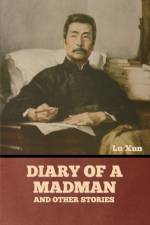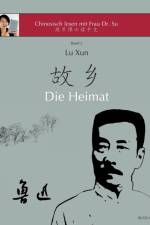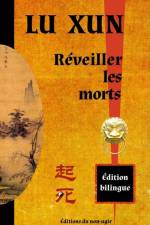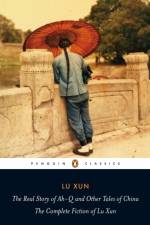av Lu Xun
285 - 449,-
"Diary of a Madman", also translated as "A Madman's Diary" is a short story by the Chinese writer Lu Xun, published in 1918. It was the first and most influential work written in vernacular Chinese in republican era China, and would become a cornerstone of the New Culture Movement. Lu Xun's stories often critiqued early 20th century Chinese society, and "Diary of a Madman" established a new language and revolutionary figure of Chinese literature, an attempt to challenge conventional thinking and traditional understanding.The diary form and the idea of the madman who sees reality more clearly than those around him were inspired by Nikolai Gogol's short story "Diary of a Madman". Lu Xun's "madman" sees "cannibalism" both in his family and the village around him, and he then finds cannibalism in the Confucian classics which had long been credited with a humanistic concern for the mutual obligations of society, and thus used to justify the superiority of Confucian civilization. The story can be read as an sardonic attack on traditional Chinese culture and society and a call for a new culture."Diary of a Madman" is the opening story in Lu Xun's first collection, and has often been referred to as "China's first modern short story". It was only the second modern vernacular Chinese story, after Chen Hengzhe's "One Day". It was selected as one of the 100 best books in history by the Bokklubben World Library, and listed as one of the ten best Asian novels of all time by The Telegraph in 2014. Despite its success and dominance in Chinese literature, Lu Xun's stories took five years before they were widely recognized as a notable works of literature. Before he published the "Diary", Lu Xun was in a state of complete hopelessness and despair. His state of mind being unknown readers during this time, except to the few individuals who were close to him. Thus "Diary of a Madman", with its use of foreign techniques, was not easily comprehensible to most audiences at the time. The theme of cannibalism, and notion of "eating oneself", sparked controversy and criticism among readers due to its ambiguity and interpretation as an extremely harsh criticism of general Chinese culture and traditional ideas. Lu Xun's attempts to cure the cultural malaise which exists in traditional Chinese society through his writings were not easily embraced. However, the "unprecedented" nature of the story and its salient themes and timely arrival captured the attention of many authors and commentators alike. Overall, Lu Xun's work serves as an account of historical change in republican era China and biting social criticism towards issues which still hold relevance in Chinese society today. Lu Xun's short stories were recognized as a significant work of modern classical Chinese literature, reflecting the themes of Chinese society's struggle to break free from a culture of tyrannical imperial power which had ruled the country for millenia, the problematic social structure of Chinese society and the political issues of the time. (wikipedia.org)




